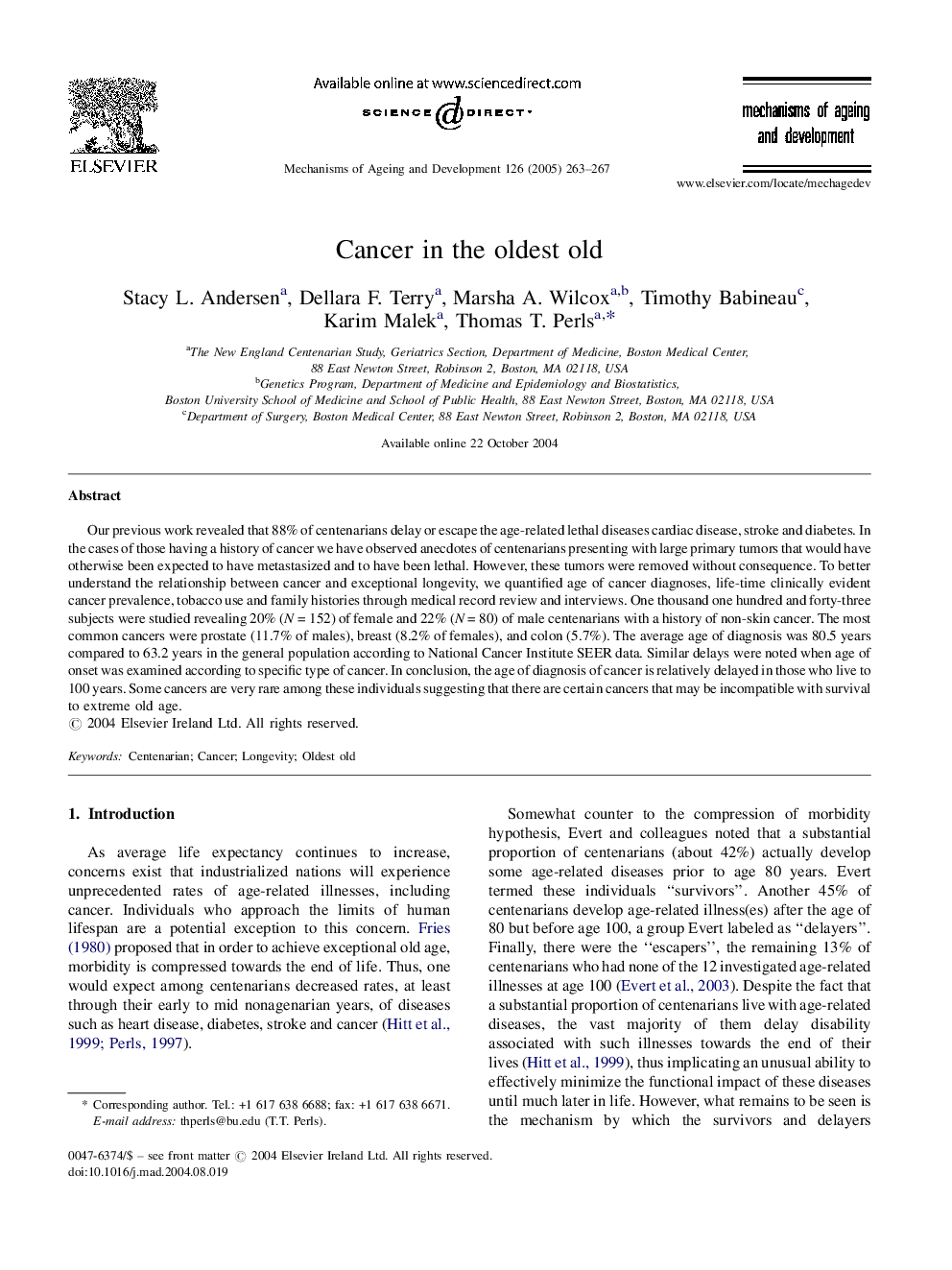| Article ID | Journal | Published Year | Pages | File Type |
|---|---|---|---|---|
| 9881357 | Mechanisms of Ageing and Development | 2005 | 5 Pages |
Abstract
Our previous work revealed that 88% of centenarians delay or escape the age-related lethal diseases cardiac disease, stroke and diabetes. In the cases of those having a history of cancer we have observed anecdotes of centenarians presenting with large primary tumors that would have otherwise been expected to have metastasized and to have been lethal. However, these tumors were removed without consequence. To better understand the relationship between cancer and exceptional longevity, we quantified age of cancer diagnoses, life-time clinically evident cancer prevalence, tobacco use and family histories through medical record review and interviews. One thousand one hundred and forty-three subjects were studied revealing 20% (NÂ =Â 152) of female and 22% (NÂ =Â 80) of male centenarians with a history of non-skin cancer. The most common cancers were prostate (11.7% of males), breast (8.2% of females), and colon (5.7%). The average age of diagnosis was 80.5 years compared to 63.2 years in the general population according to National Cancer Institute SEER data. Similar delays were noted when age of onset was examined according to specific type of cancer. In conclusion, the age of diagnosis of cancer is relatively delayed in those who live to 100 years. Some cancers are very rare among these individuals suggesting that there are certain cancers that may be incompatible with survival to extreme old age.
Keywords
Related Topics
Life Sciences
Biochemistry, Genetics and Molecular Biology
Ageing
Authors
Stacy L. Andersen, Dellara F. Terry, Marsha A. Wilcox, Timothy Babineau, Karim Malek, Thomas T. Perls,
